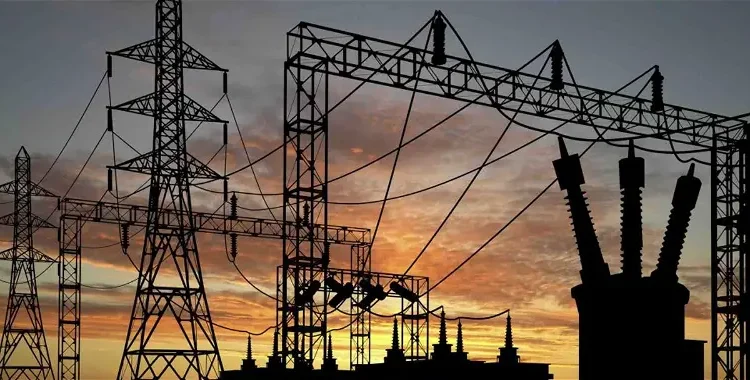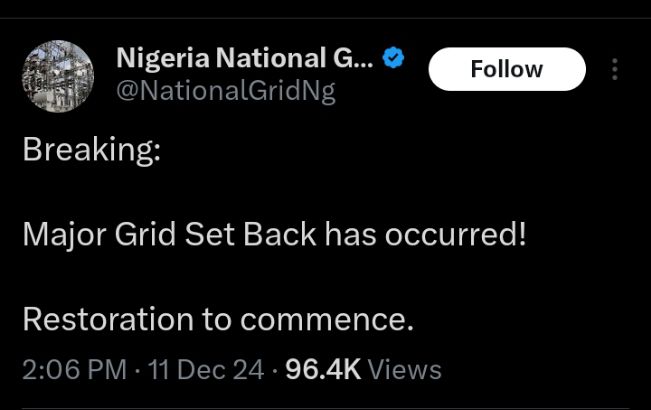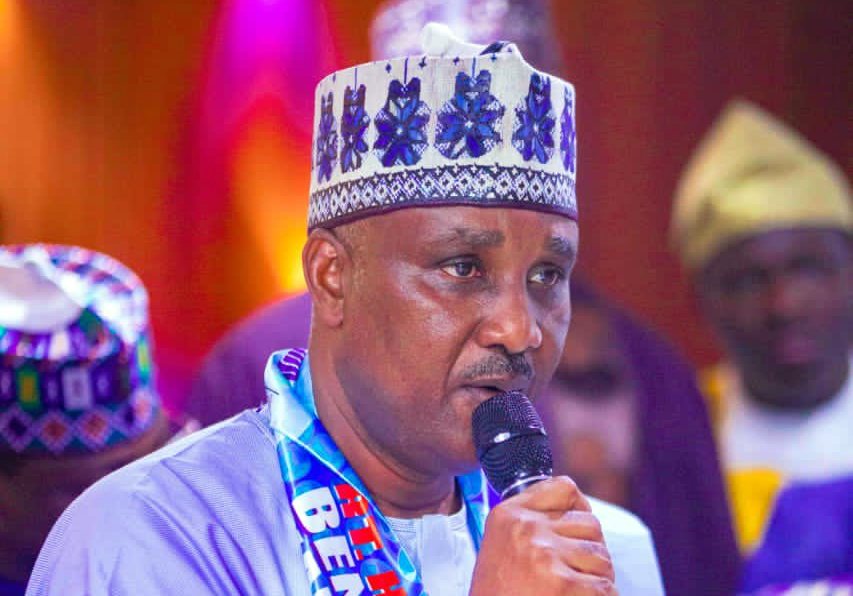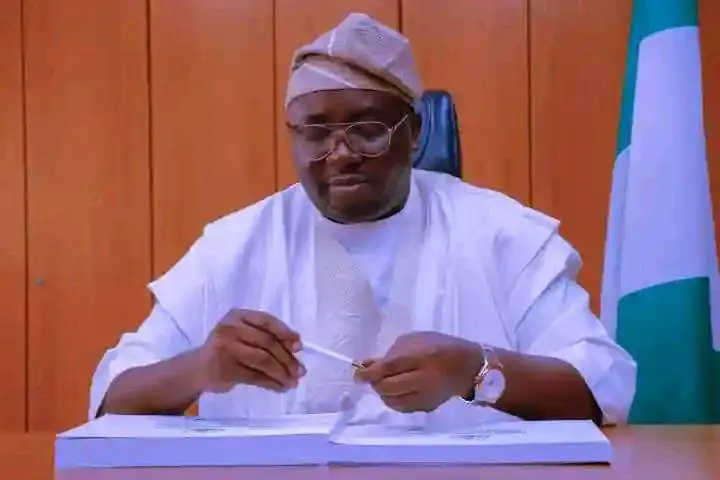©2022 DopeReporters. All Right Reserved. Designed and Developed by multiplatforms
Tag:
grid
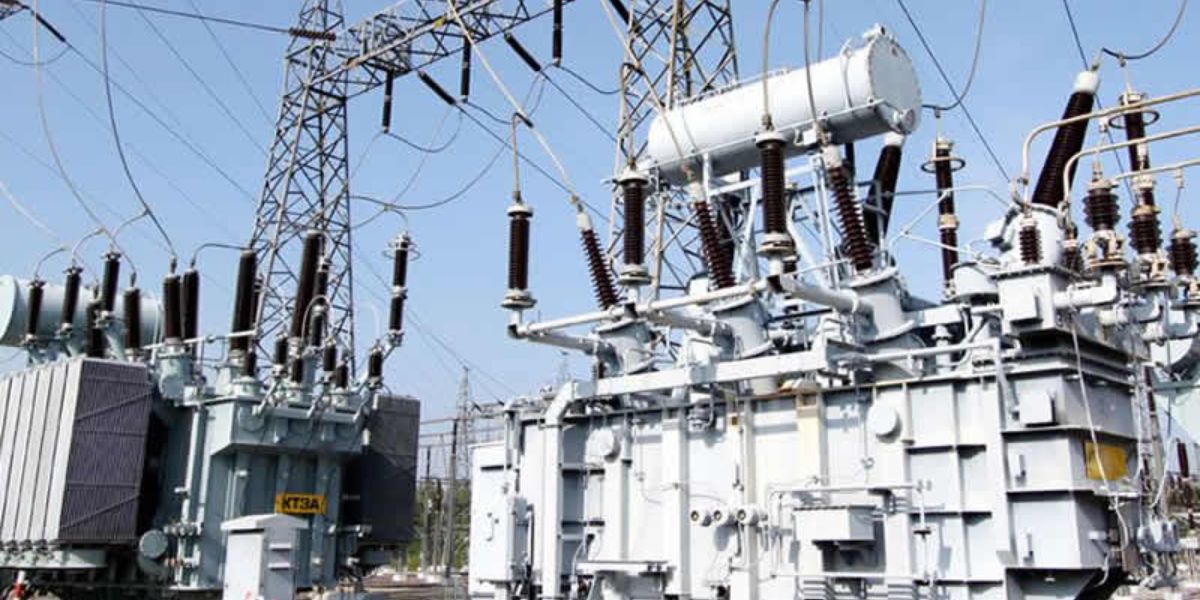
The National Grid, has suffered yet another collapse, making it its 12th collapse in 2024.
The Nigerian National Grid disclosed this in a tweet via its official handle on X on Wednesday.
Nigerians have groaned and condemned the incessant collapse of the grid, calling for a permanent solution to the issues.
Since January 2024 till date, the grid has collapsed 11 times.
Within one week in October, the grid collapsed three times with its attendant blackouts.
“The major grid setback has occurred and the restoration is to commence,” the tweet read.
Nigeria’s National Grid collapsed for the 12th time this year on Wednesday.
The latest incident happened around 2.09 pm, plunging Nigerians into darkness again.
Since January 2024 until date, the grid has collapsed 11 times.
Within one week in October, the grid collapsed three times.
A tweet from the official handle of Nigeria’s National Grid, said: “A major grid setback has occurred and the restoration is to commence.”
More to follow…
The Emir of Zazzau, Amb. Ahmad Bamali says the recurring collapse of the national grid is hampering the educational development of Nigeria.
“This ugly development is especially truncating e-learning in the country, and the earlier it is reversed, the better for education in the nation,” he further decried.
NAN reports that the emir spoke on Tuesday in Kaduna at the 2nd Annual National Conference, 2024, organised by the National Teachers’ Institute (NTI).
Represented by the District Head of Doka, Kaduna North Local Government Area, Alhaji Jibrin Magaji, Bamali also said, “E-facilitation is very important.
“It is very important as it facilitates effective e-learning and teaching in schools at all levels.”
The traditional ruler also listed other formidable challenges to education in Nigeria to include inadequate access to internet facilities.
“Another problem affecting education in Nigeria is the low digital literacy of the students and teachers across Nigeria, ”the emir added.
Bamali, however, opined that with plausible measures like sustained training and retraining, the obnoxious development could be redressed.
“Instructively, with what NTI is doing today, the unpalatable story of our education could be changed for the better, ”he said.
Bamali called for the reinvigoration of monitoring and evaluation, as well as ensuring sustainable policies.
Speaker Abbas calls for collaboration among stakeholders to improve reliability of national power grid
by admin
The Speaker of the House of Representatives, Tajudeen Abbas, has pledged the support of the National Assembly for the ongoing reform of the Nigerian power sector, calling for collaboration among all stakeholders to improve the reliability of the national power grid.
Abbas made this observation at the opening ceremony of the International Power Engineering Exhibition and Conference in Abuja on Thursday.
He also called for the integration of renewable energy into the country’s energy mix to enhance efficiency and sufficiency.
At the conference, themed “Birthing an Effective Electric Power Sector of the 21st Century: The Role of Professional Practice Regulation,” the Speaker, represented by the Deputy Chairman, House Committee on Power, Rep August Gana, noted that over the years, the sector has undergone several reforms and privatizations aimed at improving efficiency and reliability.
He said that despite these efforts, the sector continues to face numerous challenges, including inadequate infrastructure, transmission and distribution losses, and insufficient generation and distribution capacities.
According to the Speaker, “The transition from National Electric Power Authority (NEPA) to Power Holding Company of Nigeria (PHCN), while marked with optimism, was also met with skepticism, leading to the comical phrase ‘Problem Has Changed Names.’ Yet, despite these challenges, we have seen remarkable progress, especially through the privatization of the sector with successive generation companies (GenCos) and distribution companies (DisCos). This shift has opened the door to more participants and anticipated investment, providing us with an opportunity to redefine the future of power in Nigeria.”
Also speaking, the Chairman of the Senate Committee on Power, Senator Eyinnaya Abaribe, lamented that the poor performance of the power sector has left about half of Nigerians without electricity.
He noted that Nigeria’s power sector faces numerous challenges, including frequent grid collapses, inadequate generation capacity, inefficient transmission and distribution networks, and regulatory hurdles that impede progress.
He stated that the nation currently generates approximately 4,500 MW for a population exceeding 200 million, leaving about half of the citizens without reliable electricity access.
Despite possessing vast energy resources, he lamented that the country continues to grapple with significant challenges in power generation and distribution, stressing that this stark reality underscores the necessity for a collaborative effort to reform and revitalize the power sector.
Speaking earlier, the President of the Chartered Institute of Power Engineers of Nigeria (CIPEN), Engr Israel Abraham, explained that power is central to every index of development and a robust economy, believing that as the world gets it right and provides good, efficient, and affordable power to its citizens and industries, with new ideas on how to manage available power through smarter apparatus and control, most of the issues captured in the subthemes will remain relevant.
He stated that the ultimate goal of the international power exhibition and conference is to provide an uncommon syndicated platform that will host major players in the power sector worldwide, with special reference to Nigeria.
The Transmission Company of Nigeria (TCN) says recovery process is ongoing to stablise the national grid which experienced a disturbance at 11.29am on Thursday.
Mrs Ndidi Mbah, TCN’S General Manager, Public Affairs, said this in a statement in Abuja.
Mbah said that the grid experienced a disturbance at approximately 11:29am on Thursday morning, caused by a sudden rise in frequency from 50.33Hz to 51.44Hz.
She said that recovery efforts began immediately, and the Abuja axis was restored within 28 minutes.
According to her, the spike in frequency was caused by issues encountered at one of TCN’s substations, which had to be shut down to prevent further complications.
”In addition to this, we are actively engaged in significant repair work on several critical transmission lines and substations.
”These includes the 330 Kilo Volt (kV) transmission lines along the Shiroro–Mando axis, major upgrades at the Jebba Transmission substation, and the restoration of the second Ugwuaji–Apir 330kV transmission line, ”she said.
Mbah said that following the submission of the investigative report on the causes of previous grid collapses, TCN had begun addressing the identified weaknesses in the transmission system.
She said that efforts were being made to close the gaps highlighted in the report and to enhance the overall stability and resilience of the grid.
”These efforts include both technical upgrades and strategic interventions, based on the committee’s recommendations.
”However, it is important to note that while these repairs and improvements are underway, some degree of instability in the system is likely to persist until all major works are completed.
”The TCN acknowledges the impact of these disruptions and asks for the understanding and patience of the public during this challenging period,”she said.
Mbah said that the company remained committed to improving the reliability of electricity supply, recognisng the vital role that stable power plays in Nigeria’s socio-economic development.
She assured the public that all necessary measures were being taken to ensure the grid’s long-term stability.
Mbah said that the measures were in line with the recommendations of the investigative committee, while also addressing infrastructure damage such as vandalised transmission lines.
The Transmission Company of Nigeria, TCN, has said bulk power restoration has begun hours after Nigeria was plunged into darkness due to another national grid collapse.
TCN spokesperson Ndidi Mbah disclosed this in a statement, confirming that the grid collapsed for twelve times around 11:29 am on Thursday.
DAILY POST reports that Nigeria was thrown into another round of darkness on Thursday after the national grid collapsed for the second time this week.
Reacting to Thursday’s national grid collapse, TCN said, “The frequency spike was caused by issues encountered at one of our substations, which had to be shut down to prevent further complications.
“The Transmission Company of Nigeria (TCN) wishes to inform the public that the national grid experienced a disturbance at approximately 11:29 am this morning, caused by a sudden rise in frequency from 50.33Hz to 51.44Hz.”
On restoration of bulk supply, TCN said, “Recovery efforts began immediately, and the Abuja Axis was restored within 28 minutes. Recovery is still ongoing.
“In addition to this, we are actively engaged in significant repair work on several critical transmission lines and substations.
“This includes the 330kV transmission lines along the Shiroro-Mando axis, major upgrades at the Jebba Transmission Substation, and the restoration of the second Ugwuaji-Apir 330kV transmission line.
“Furthermore, following the submission of the investigative report on the causes of previous grid collapses, we have begun addressing the identified weaknesses in the transmission system.
“Efforts are being made to close the gaps highlighted in the report and to enhance the overall stability and resilience of the grid. These efforts include both technical upgrades and strategic interventions based on the committee’s recommendations.
“However, it is important to note that while these repairs and improvements are underway, some degree of instability in the system is likely to persist until all major works are completed.
“We acknowledge the impact of these disruptions and ask for the understanding and patience of the public during this challenging period.”
The incessant national grid collapse has stirred reactions from Nigerians who lamented that the grid now faces disturbances regularly.
The Federal Government on Thursday said it is adopting a holistic approach in addressing reoccurring incidents of grid collapse in the power sector.
The Minister of Power, Adebayo Adelabu gave the assurance when the investigative committee on frequent incidents of grid collapse submitted its report.
“The recommendations are practical and reality recommendations that are implementable and I believe it will bring an end to the ugly trend.
“The thing of grid collapse will soon be a thing of the past,” the minister assured.
It was gathered that the short term recommendations are expected to be implemented within the next six months to stabilize the grid.
DAILY POST reports that the grid collapsed on Thursday afternoon, the second incident in just three days.
The frequent reports of the national grid collapse has been a source of concern to many Nigerians.
The Federal Government has revealed that poor maintenance practices, outdated equipment, and insufficient resources are major contributors to the recent frequent collapses of the national power grid.
According to reports, this statement from the government comes a day after the latest grid collapse, marking the tenth occurrence in 2024 alone.
Nafisatu Asabe Ali, Chair of the committee investigating the grid failures, presented a report yesterday at the Ministry headquarters in Abuja, stating that excessive voltage beyond the capacity of the equipment led to the blackouts on October 14 and 19, 2024.
Ali noted that the investigative team found similar issues affecting all stations. The investigation into the October 14 and 19 incidents showed that the failures were due to malfunctioning lightning arrestors at the Jebba and Oshogbo transmission stations and an explosion of a current transformer at Jebba Station.
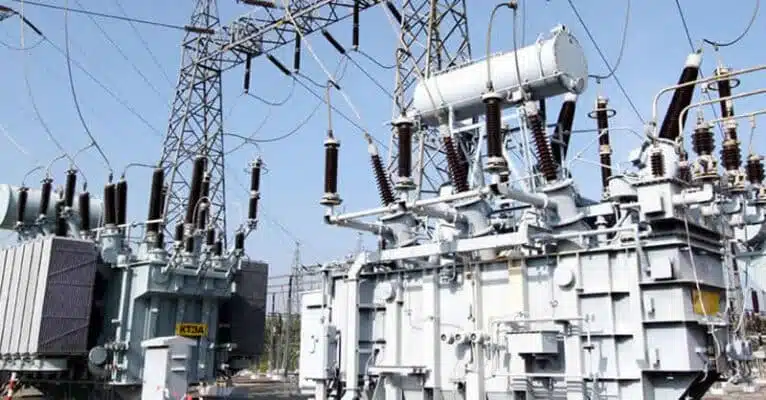
Ali said: “For the event on the 14th, lightning arrestors in Jebba and Oshogbo shattered. The one in Jebba was for the shunt reactor and this was caused by high voltage. Subsequently, we had the tripping of multiple 330kV lines. It kept going until it became major.
“The remote cause of that is the unavailability of the second reactor in Jebba, and that is because Jebba, by the design of the network and sometimes the topology of the network at a particular time is very prone to high voltage.
“We had two shunt reactors in Jebba before this event, however, one packed up. It is faulty, and so the voltage rose to about 400KV, which is beyond the threshold. High voltage degrades equipment insulation.
“If you expose equipment to high voltages for a long time, it degrades the insulation. And, of course, there’s a risk of failure. So, that was a remote cause for that. But the underlying causes are aged equipment. In our findings, we confirmed that Jebba was commissioned in 1968. Some of the equipment was commissioned alongside the substation. So, aged equipment. And maintenance culture is also an issue.”
The committee identified several factors impacting management, including vandalism of power infrastructure, insufficient availability of governors at power generation facilities, disorganized maintenance schedules, and inadequate human resources.
In response, the Minister of Power, Adebayo Adelabu, indicated that the ministry would seek additional funding from the 2024 Supplementary Budget and the 2025 Appropriation Bill to address the financial challenges associated with the necessary strategies to mitigate the ongoing grid failures.
He expressed confidence that the recurrent failures of the Nigerian power grid could be addressed through the implementation of comprehensive reforms, noting, “this ongoing grid collapse, which is regrettable and concerning to me personally as the Honorable Minister of Power responsible for this sector.”
Adelabu further stated that he would submit a revised report to support his proposal to President Bola Tinubu, considering the financial implications involved.
He said, “Today’s meeting is to receive a report on the agency committee set up about two and a half weeks ago, to reveal the root cause of the incessant grid disturbances that we have experienced in the past few months. This is not good for us as a country. It is not good for us as a power sector. It is not good for us as a ministry of power and other agencies.”
The committee also listed recommendations for the audit and tests of existing equipment and improvement in maintenance of the transmission equipment and lines, installation of harmonics filters by Disco and Genco customers, decentralization of TCN central store, enforcement of Free Governor Mode of Operation and removal of ad-lash taped optic fibre for Optical Ground Wires.
National Grid now collapses every ‘eke market’ day – Nigerians react to nationwide blackout
by admin
Reactions have continued to trail the nationwide blackout following another collapse of the national grid.
DAILY POST reports that since January 2024 till date, the grid has collapsed 12 times.
Nigerians were on Thursday, November 7 denied electricity again following another collapse of the national power grid after the November 5th total blackout.
The latest developments have sparked reactions from Nigerians on the internet, with some calling for the removal of the power minister over incompetence.
Some others have alleged that the generator importation cabal could be behind the collapse while others say the constant shut down of power across the country could be deliberate.
@Esteembehemoth on X, lamented the constant collapse of the grid, saying; “Every Eke market day. Sigh.”
@MrLekan213; “I talk ham say na SS be this national grid.”
@healthprefectt; “At this point, one would think you guys are doing this thing internationally.”
@carsblogerrrr; “Enough is enough! The National Grid has failed us again. How are we supposed to live, work, or even survive when we can’t depend on basic electricity? This isn’t just an inconvenience; it’s a crisis. We demand immediate action and solutions from our leaders! Sack the Minister of power, this shows he can’t do his job!”
@Oluwatoyinzoe; “Generator importers and oil cabals at work, how will they make money if the power supply is constant? The Minister of power is only cooking stories by saying the facilities are poor, it is definitely not that the facilities are poor, I strongly believe the boys sponsored by generator importers and oil cabals are the ones destroying sections of the national grid and the most shocking thing is those boys may be among those working to secure the national grid. The government need to go hard after them if they want to solve this problem once and for all.”
@ucnwali; “If only our National Grid was as strong as our National Greed.”
@meetdammy_; “National grid don dey fall pass dollar these days.”
@victor_oyibes; “The person in charge of this grid must be a 2minutes man.”
Nine Northern states in Nigeria have been plunged into darkness as the National grid collapsed again.
The President of Nigeria Consumer Protection Network, Kunle Olubiyo disclosed in a statement on Monday night.
The electricity system collapse led to outages in Kaduna, Kano, Jigawa, Benue, Katsina, Taraba, Gombe, and parts of Borno and Nasarawa states.
The latest collapse though partial is the fourth time in less than two weeks.
Recall that at the weekend the grid collapsed for the third time in a week.
Reacting to the incessant national grid collapse and its impact on Nigeria’s economy, Olubiyo asked President Bola Ahmed Tinubu to declare an emergency on the power sector.
“The present overwhelming widespread darkness being experienced in about 11 Northern States is nothing but a global embarrassment”, he said.
Meanwhile, Nigerian authorities are yet to confirm the latest grid collapse.
Earlier, the Nigerian Electricity Regulatory Commission and the Transmission Company of Nigeria blamed Saturday’s grid collapse on an explosion of a current transformer at the Jebba transmission station at 08:15 am hours.
The Nigerian Electricity Regulatory Commission (NERC), has fixed October 24 to conduct an investigative public hearing to address the incessant grid collapses.
Recall that the grid had collapsed on Monday last week and power was only restored on Tuesday.
The collapse on Saturday is the second within a week and the seventh in 2024
The Commission, in a notice posted on its Twitter handle on Monday, said that the hearing would hold at its Hearing Room, Fourth Floor, Plot 1387, Cadastral Zone Central Business District, Abuja.
“All stakeholders including Civil Society Organisations (CSOs), and the general public are invited to the hearing.’’
The Commission said it is mandated to conduct public hearings on critical issues relating to the Nigerian Electricity Supply Industry (NESI).
“In line with Section 48, subsection 1 of the Electricity Act 2023 (Amended), NERC is mandated to conduct public hearings on critical issues relating to NESI.
“The Commission has noted with concern the recent escalating incidences of grid disturbances often leading to marked outages in several states.
“Thus reversing many of the gains recently achieved in reducing infrastructure deficit and improving grid stability,’’ it said.
A chieftain of the Peoples Democratic Party, PDP, in Delta State, Chief Sunny Onuesoke has described the frequent collapse of the national grid as an embarrassment and threat to security the country.
Onuesoke, who spoke to newsmen, stressed that “the collapse of the national grid serious consequences on the Nigerian economy”.
While noting that electricity supply is crucial to the country’s economic growth and development, Onuesoke said the Nigerian economy suffers greatly from the regular failure of the national grid.
According to him, the problem reduces output in manufacturing and services, raises household expenses, and slows growth in the economy as a whole.
“The collapse reduces the ability of Nigerian businesses to compete internationally hence many firms are forced to invest in alternate power sources, such as generators, which dramatically raise their operational expenses.
“Secondly, the service industry as a whole is affected, especially in financial and technological fields. The steady flow of electricity is crucial to the success of these industries. The frequent grid failures cause disruptions in service, which in turn reduces both the companies’ capacity to make a profit and the quality of their service to the people of Nigeria.
“The third effect is on individual families. As a result of these blackouts, many homes have had to switch to expensive, inconvenient alternatives to conventional electricity. As a result, households will have less money available to spend, which will have a ripple effect on the economy as a whole,” he stated.
Stressing that the electrical sector requires immediate and long-term responses to the issue, he wondered what the state governors are doing after the Federal Government had given them the green light to go ahead to construct their own power stations.
“They know that without electricity there is no development in anywhere in the world. How many governors can boast of creating just 10 percent of their own power stations? None. Why is that they depend on the Federal Government for statutory allocation and electricity supply where as the Federal Government had giving them instruction to act. What are they really there for?”
It would be recalled that Nigeria has witnessed many national grid collapses in 2024.
The recent ones, which occurred three times within a week, have given Nigerians cause to complain.
The Nigerian Government has said that Saturday’s national grid collapse was caused by an explosion of a current transformer at the Jebba transmission station at 08:15 am hours.
The Nigerian Electricity Regulatory Commission, NERC, and Transmission Company of Nigeria, TCN, disclosed this in a statement on Saturday.
Saturday’s grid collapse made it the third time the system shut down in the last seven days.
Reacting, NERC noted that bulk power supply has been significantly restored as of 13:00 hours on Saturday in 33 states and the Federal Capital Territory.
“The Nigerian Electricity Regulatory Commission notes with concern the recent escalating incidence of grid disturbances often leading to marked outage in several states thus reversing many of the gains recently achieved in reducing infrastructure deficit and improving grid stability.
“Initial reports on the grid disturbance that occurred this morning indicate that today’s outage was triggered by an explosion of a current transformer at the Jebba transmission station at 0815hrs and an associated cascade of power plants shut down arising from the loss of load.
“However, efforts to restore supply have advanced with power significantly restored, as at 1300hrs, in 33 states and the
FCT.”
The Commission added that in line with the provisions of the Electricity Act 2023, the unbundling of System Operator out of the Transmission Company of Nigeria is ongoing.
“In line with the provisions of the Electricity Act 2023, the unbundling of the System Operator function (SO) out of Transmission Company of Nigeria Plc is ongoing with the expectation that an independent SO would engender more discipline in grid management and optimized investment in infrastructure.
NERC vowed to conduct an investigative hearing towards finding a permanent resolution to challenges of the national grid.
“In pursuit of finding a permanent resolution to the challenges of the national grid, the Commission shall shortly conduct an investigative public hearing to identify immediate and remote causes of recurring incidence of grid disturbances and widespread outages.
“The date and venue of the public hearing will shortly be announced in the national dailies and stakeholders are encouraged to participate”.
TCN aligned with NERC on the reason for Saturday’s grid collapse.
TCN also said the power supply has been fully restored.
A statement by TCN spokesperson, Ndidi Mbah said, “Report from National Control Centre, the bus section of a current transformer exploded at 330kV Jebba Transmission Substation and as expected, the protection system was activated, and this promptly opened the busbars to curtail the explosion, thereby preventing the outbreak of fire and further damage to adjacent
equipment.
“The action of the protection system led to a temporary disturbance on the grid.”
Recall that the national grid had collapsed three times in the last seven days. In the process of restoring Monday’s grid collapse, the grid experienced another disturbance.
In this year alone, the national grid had collapsed at least eight times.
The National Grid is currently trending again on social media, particularly X, due to a significant power crisis in Nigeria.
Tribune Online recently reports that the grid experienced two major collapses within a 24-hour period earlier this week, leaving millions of Nigerians without electricity and prompting widespread public concern.
The National Grid, which collapsed on Tuesday, October 15, shortly after a previous failure on Monday, October 14, resulted in a total blackout across various regions, affecting multiple electricity distribution companies (DisCos) such as Eko, Kaduna, and Enugu.
Following this development, various DisCos have communicated with their customers about the outages, assuring them that restoration efforts are underway.
The Transmission Company of Nigeria (TCN), in an update earlier this week regarding the outages, stated that recovery efforts were progressing, with approximately 90% of substations nationwide expected to be back online soon.
However, in a recent update from the Nigeria National Grid account on X, many DisCos were still reporting zero megawatts of power being distributed, suggesting that the grid has collapsed yet again.
The post, which has now gone viral, read: “DisCo Load 08:40 a.m:
Abuja DisCo – 0 MW
Benin DisCo – 0 MW
Eko DisCo – 0 MW
Enugu DisCo – 0 MW
Ibadan DisCo – 0 MW
Ikeja DisCo – 0 MW
Jos DisCo – 0 MW
Kaduna DisCo – 0 MW
Kano DisCo – 0 MW
P-Harcourt DisCo – 0 MW
Yola DisCo – 0 MW
Total: 0 MW
Expected: ~4,800 MW.”
Meanwhile, the Minister of Power, Adebayo Adelabu, in his reaction to the recurring grid collapse, described it as inevitable and attributed Nigeria’s frequent national grid issue to outdated infrastructure.
While speaking recently at the unveiling of Hexing Livoltek, a new electricity meter manufacturing company in Lagos, Adelabu said, “We keep talking about grid collapse. Grid collapse whether it’s a total collapse, partial collapse, or slight trip-off. This is almost inevitable as it is today given the state of our power infrastructure.
“The infrastructure is in deplorable conditions so why won’t you have trip-offs? Why won’t you have collapses, either total or partial? It will continue to remain like this until we can overhaul the entire infrastructure. What we do now is to make sure that we manage it.”
As of the time of filing this report, TCN, however, is yet to comment on the reports of the new collapse.
ALSO READ THESE TOP STORIES FROM NIGERIAN TRIBUNE
Newer Posts


